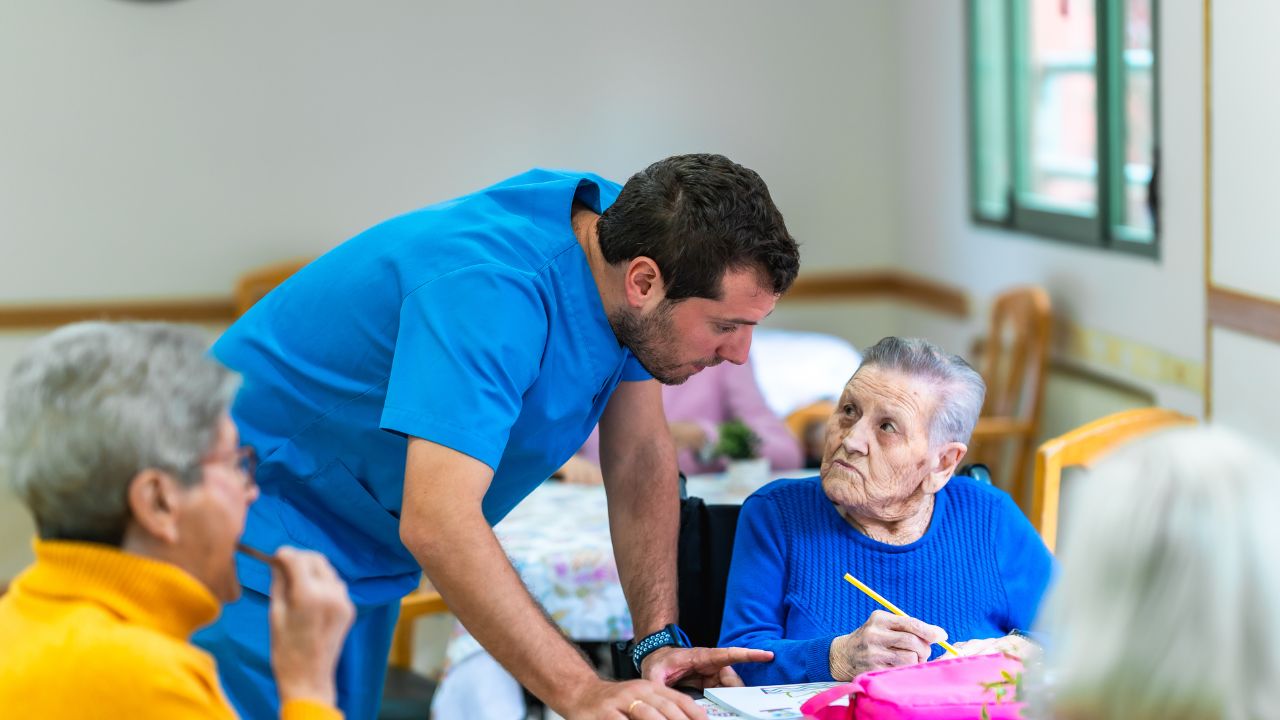With the well-known nursing shortage constantly making media headlines and the recent publishing of a large-scale research project by the NCSBN showing alarming figures for the state of the nursing workforce, we decided to look for inspiration from a personal perspective. For today's post, we asked a registered nurse, Lydia, to share her personal story about why she became a nurse.
Lydia, RN
These are the major factors that I considered when I was a teenager/young adult as I tried to plan my future and decided to become a nurse. Some of my reasons may seem cold and calculated, but what you need to understand is that for anyone who has experienced financial insecurity over an extended period of time (particularly in the young, formative years), that insecurity can, for some, suppress idealistic dreaming (I mean, who doesn't want to be a famous singer?) and replace it with hard practicality. In the end, I found nursing, which met my practical needs but also allowed me to feed a desire within that wanted to help others. Here are the three factors that brought me to nursing.
1. Financial Security
While it's definitely true that nurses aren't the highest-paid profession out there, they consistently earn a middle-class range salary. I grew up in a working-class family, where all our needs were met, but there was a pervasive insecurity in our financial situation that was stressful for my parents, and that stress was also absorbed by me. While in high school, I knew I had to pick something that would allow me the financial security that I hadn't yet experienced.
Becoming a doctor is an obvious first pick for high school kids who want to make money. After all, in most small towns, the richest people are usually the doctors and the bankers. But the idea of ten years or more of notoriously challenging years, the competitive med school programs, and the number of loans I would have to repay at the end made the doctor option intimidating and unattractive, and banking just seemed boring.
Nursing, on the other hand, seemed achievable both in terms of program time in order to begin earning money and the cost of education. I could do a licensed practical nurse (LPN) program or an associate's degree in nursing (ADN) to become a registered nurse (RN) at the local community college. The community college was much more affordable both in terms of tuition compared to a big university and the convenience of living at home instead of paying for room and board. Ultimately, I went the ADN route deciding an extra year or so of classes would be offset by the difference in salary between an LPN and RN.
2. Job Security
The call to action regarding the country's nursing shortage is not a new one, actually. Even twenty years ago, there were warnings of an impending nursing shortage. While there was no fathoming of a pandemic in the data, survey data showed that the number of new nurses was not keeping up with the growth of the demand. The fact that today the industry faces alarming turnover and vacancy rates, alongside recent research showing burnout is a major threat to the industry, only shows that the pandemic exacerbated an already present concern.
Of course, as a 17-year-old, I wasn't specifically aware of those concerns, but I knew, based on the information I'd gathered from the community college's program site and brochures, that it was a profession expected to grow in demand and that sounded like job security. I knew if I wanted financial security, I needed a profession that was not only affordable and attainable but one that would also have jobs available. As it turns out, 17-year-old me was right, even though the 39-year-old nurse me is slightly horrified that I made such a significant conclusion with only the data on a brochure.
3. Positive Personal Experiences with Nurses
My decision wasn't only based on logic and practicality; it did have an emotional component as well. Over the years, my experiences with the health industry were touched largely by nurses. Of course, I interacted with doctors, surgeons, physical therapists, and other healthcare clinicians (I had knee surgery when I was 15 years old). Nevertheless, the clinicians with the most consistent presence in all those interactions to answer questions and guide me through appointments, illnesses, treatments, and take-home instructions were usually nurses.
Those experiences shaped a perception in me that nurses were consistent caregivers and responsible for the human connection for society's healthcare. The more nurturing and emotional part of my character and personality connected with that perception of a profession that both provides care and also cares. I wanted to be financially secure, but I also wanted to connect with people. Ultimately, nursing can do both.
FAQs About Becoming a Nurse
Lydia's reasons for becoming a nurse are her own, and while everyone is unique, there are undoubtedly other nurses or nursing students who can identify with her reasons. Do her personal reasons resonate with your own? What motivated you to become a nurse? Do you want to become a nurse? If so, here are a few FAQs to get you started.
How much do nurses earn?
According to the U.S. Bureau of Labor Statistics, RNs nationwide in 2022 earned an average yearly salary of $89,010 or $42.80 per hour.
What do registered nurses (RNs) do?
We answer this question in-depth in our post "What does an RN do? Another Day, Another Story".
How do you find RN Jobs?
The healthcare agency smartphone app Nursa is a platform that connects hospitals and healthcare facilities looking for staff to fill shifts with licensed registered nurses licensed practical nurses, and certified nursing assistants looking to pick up shifts. For more information about how Nursa works, check out our post, "Jumpstart Your Nursing Career: Tips for New Nurses."








.jpg)





